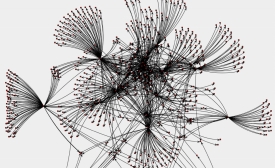public diplomacy
Most often associated with Alec Ross’s stint at the State Department as Senior Advisor for Innovation, diplomacy’s rush to better leverage the advantages of social media and mobile technologies by investing in ediplomacy and PD 2.0 is no secret. On his first day as new Under Secretary for Public Diplomacy and Public Affairs last February, Richard Stengel made his position clear: social media are “transformational tools” and the State Department needs to move toward a “digital-first strategy.” Ambassadors now tweet regularly.
While U.S. and Iranian negotiators labor to reach a long-term nuclear agreement, other Americans and Iranians are stepping up contacts in a new wave of people-to-people diplomacy. In recent months, three American religious delegations have visited Iran while the first group of female Iranian seminary students came to the United States. Sports exchanges are also on the rise again,spearheaded by American wrestlers who find far more numerous and passionate fans in Iran than in many countries, including the U.S.
The United States must launch a "real war of ideas" with Russia according to Ilan Berman, the Vice President of the American Foreign Policy Council in Washington. The US international broadcasting capacity should be improved and a new public diplomacy strategy ought to be developed by the White House.
As ISIS make gains in Iraq and declare an Islamic caliphate, media activists embedded along the front lines and their global support networks, the media mujahedeen, valorize their achievements in HD video and Hollywood film style posters which are distributed via social media.

How public diplomats can counter the online presence of media mujahedeen.
Bahrain ordered a top U.S. diplomat to leave the country on Monday after he met with a leading Shiite opposition group. The Foreign Ministry said in a statement that U.S. Assistant Secretary of State for Democracy, Human Rights and Labor Tom Malinowski is not welcome in Bahrain. It said he intervened in the country's domestic affairs by holding meetings with some groups at the expense of others.
The United States officially ended one of the most ineffective and widely criticized programs of the last decade aimed at undermining the Cuban government, the State Department revealed Monday. Foggy Bottom's inspector general released a report showing that AeroMarti, a multimillion-dollar boondoggle that involved flying an airplane around Cuba and beaming American-sponsored content to the island's inhabitants, quietly ended in April.
The safe return of 46 Indian nurses from Iraq is the result of astute diplomacy and a calibrated exercise of soft power by multiple agencies of government. While External Affairs Minister Sushma Swaraj engaged her counterparts at the political level in West Asia, including Foreign Ministers of the six oil-rich monarchies of the Gulf Cooperation Council, sound tactical leadership seemed to have been provided by Foreign Secretary Sujatha Singh and National Security Adviser Ajit Doval.







